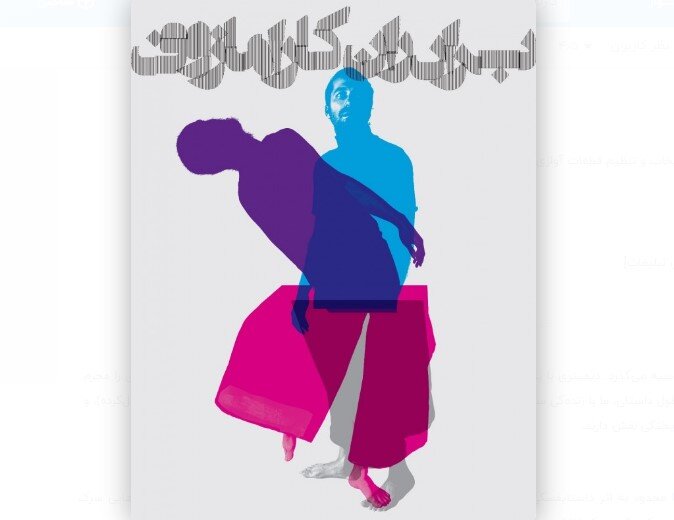Iranian director staging The Brothers Karamazov in sixhour performance
Iranian director staging "The Brothers Karamazov" in six-hour performance
TEHRAN- An adaptation of Fyodor Dostoevsky's renowned novel "The Brothers Karamazov" is currently being staged at the Iranshahr Theater Complex in Tehran.

Iranian stage director Ashkan Khalilnejad, along with a group of theater activists, has chosen the novel as the basis for his latest production, creating a six-hour performance, ISNA reported.
In this rendition, additional materials beyond the original novel have been incorporated.
Khalilnejad began rehearsals for "The Brothers Karamazov" six years ago, and the play officially premiered last week. Due to specific performance conditions, the show will only run on Saturdays until mid-February.
Vahid Ajorlu, Majid Aqa Karimi, Milad Shajareh, Mehrdad Babai, Shakiba Bahramian, Sajjad Hamidian, and Tahereh Hazaveh are the main members of the cast for the play, which is being staged from 3 p.m. to 10 p.m. (including intermission). There is also a possibility of morning performances on certain days in February.
"The Brothers Karamazov" is an exploration of faith, morality, and human existence, revolving around the tumultuous lives of the Karamazov family. The novel begins with an introduction to Fyodor Pavlovich Karamazov, a neglectful and indulgent father whose two marriages produced three very different sons: Dmitri, Ivan, and Alyosha. Their complicated relationships with their father highlight past grievances and differing ideologies.
The family gathers at a local monastery, hoping Elder Zosima can mediate a dispute over inheritance between Dmitri and Fyodor. However, Fyodor’s provocations destroy any chance of reconciliation, leading to greater animosity. Throughout the story, Elder Zosima's attempts to console grieving individuals showcase Dostoevsky's themes of suffering and compassion, echoing the author's own experiences with loss.
As the narrative unfolds, the complexities of the love triangle involving Dmitri, Grushenka, and Fyodor come to the forefront. Dmitri’s volatile emotions culminate in an angry confrontation with his father, which exposes deep psychological wounds. The introduction of Smerdyakov, the illegitimate son with a complex background, adds further depth to the family dynamics and conflicts.
A subplot involving Alyosha and a sickly boy named Ilyusha reveals themes of childhood innocence and the cruelty of society. Alyosha’s compassionate actions illustrate his desire to bridge divides and foster connections among those suffering around him.
The philosophical debates between Ivan and Alyosha set the stage for intense discussions about faith, reason, and human suffering. In a pivotal moment, Ivan presents the "Grand Inquisitor" parable, challenging the very foundation of faith and morality, which creates tension between the brothers.
Elder Zosima’s teachings about forgiveness and the interconnectedness of human actions lend a moral weight to the story, becoming particularly poignant following his death. The belief in the sanctity of holy men is shaken when Zosima's body begins to decay, prompting questions about faith, doubt, and the essence of holiness.
As events escalate, Dmitri's desperate pursuit of love and money leads him to violence against his father, resulting in accusations of murder. Despite Dmitri's vehement denials, circumstantial evidence paints him as the likely perpetrator. The investigation lays bare his turbulent emotions and chaotic lifestyle while introducing the backdrop of broader existential questions.
The narrative also captures the lives of younger characters, particularly Ilyusha and Kolya, who grapple with their own beliefs against the backdrop of societal challenges. Ivan’s mental deterioration culminates in a confrontation with Smerdyakov, revealing complicity in the family’s tragedy and deepening the novel's exploration of guilt and responsibility.
The courtroom drama surrounding Dmitri’s trial serves as a sharp satire of societal views and legal proceedings. Katerina’s dramatic testimony and the emotional turmoil it provokes ultimately seal Dmitri’s fate, highlighting the pervasive themes of love, betrayal, and injustice.
In the concluding sections, hope emerges through plans for Dmitri's escape and his reconciliation with Grushenka. Alyosha’s farewell at Ilyusha’s funeral embodies the novel’s themes of love, unity, and remembrance. He urges the youth to cherish their bonds and recalls the Christian promise of reunion. This final moment encapsulates Dostoevsky’s exploration of redemption, faith, and the enduring power of love in the face of suffering and moral complexity.
SAB/
source: tehrantimes.com